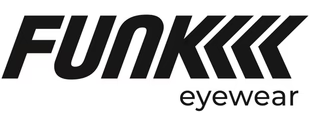Collaborative Vision: Sashee Schuster & Dieter Funk
In the indie eyewear universe, German label DIETER FUNK masters the rare feat of blending traditional manufacturing processes with timeless and always current designs. The brand’s founder and namesake Dieter Funk has been running this successful formula since the 1990s. But that’s just half of the story: The other half revolves around Dieter’s partner in life and business, Sashee Schuster. The eyewear designer has a unique process for implementing wild floral elements into gorgeous eyewear and carved out a unique niche for the label SASHEE SCHUSTER.
Can you briefly describe what brought you to the eyewear industry?
Dieter: I was rather technically oriented as a kid. When the time came to attend technical high school, my parents wanted me to study electrical engineering. But I resisted and opted for an apprenticeship instead to learn a trade. I had to choose between cook, dental technician, and optician. So I became an optician and that was a good choice. During early training I already noticed that one aspect attracted me in particular: constructing frames. So that path opened up for me quite clearly and the rest is history!
Sashee: Due to my own vision deficiency and a ‘blind date’, I ended up meeting Dieter. And with him, I was introduced to eyewear. Since then, we’ve been an eyewear tag team. What actually started me designing frames was that I wanted to pay tribute to my father and released my first collection of glasses, „Daddycated“, in his memory. My dad was born in 1925 and I often had the feeling that he was well ahead of his time in many ways. Unfortunately, I lost him quite early on. When I think back, I see the two of us in the woods foraging for mushrooms. I remember building sandcastles on the shores of the Isar river, bathing in „Bibisee lake“, and eating traditional fruit cakes in the style of his home region. Lots of great daddy-daughter moments.
Looking at your history, the FUNK label really made a name for itself with eccentric sunglasses designs. How would you describe the design DNA of these early FUNK glasses?
Dieter: Keeping in mind that this happened in the early 1990s, anything that was somewhat ‘normal’ had absolutely no chance on the market. That’s why I came out with an initial collection that was so out of left field and almost unwearable that it created the necessary level of attention. That was the birth of FUNK sun- glasses. This was also the time of techno, raves, Love Parade and with a name like this, you had to be FUNKY in order to shake up the market and get noticed.
Part of your shared story is the move to rural Bavaria to create your own manufacturing facility and of course your own home. How did that come about?
Sashee: During our rebellious years in the 1990s and early 2000s we lived together in the heart of Munich. But then in 2000, we had the desire to make a fundamental return into eyewear design in an uncompromising way, with our own manufacture facility. Moving into the new headquarters in the small town of Kinsau was a big change for the better. We finally had enough space for all the eyeglasses and our creative ideas. Plus, working with the best eyewear manufacturers and technicians.
Dieter: Yes, making the move from Munich to rural Kinsau in 2002 was one of the greatest milestones in our history. We finally had sufficient space for making the next dream a reality: Our own eyewear factory! It started in an old farmer’s house from the 17th century, and in 2017 we relocated into the new annex building that we planned and envisioned ourselves. Other milestones included our own clothing and bag label, as well as an extreme sports collection of sunglasses as well as a presence at fashion and sports tradeshows.
What has changed since you realized your own manufacturing?
Dieter: It’s really been a dream come true. I already had the dream of setting up my own factory as an apprentice. Then the time was ripe in 2006. We had enough space, but were missing the machinery and trained personnel. At the time, there was somewhat of a shockwave in the Chinese industry, when several smaller workshops closed. So, we reached out through our Chinese agent and bought up some eyewear machinery in bankruptcy estate sales. Most of these machines were “Made in Italy”, so we really just brought them back to Europe.
You’re also running a “transparent workshop” that’s open to public view at your headquarters. Do you have many opticians dropping by to witness the production?
Sashee: Yes! And we not only have the transparent workshop, but the FUNK Optik Store in Berlin Mitte also produces its own eyewear. Here in Kinsau, we get lots of people that learn on their guided tour just how elaborate the manufacturing process really is. There are lots of advantages for us.
On that note, what are the main advantages of your own factory workshop?
Dieter: The ability to test-drive new designs rather quickly. And total independence from external manufacturers, since we have full control over the kinds of models we want to prioritize in finalization and shipment.



